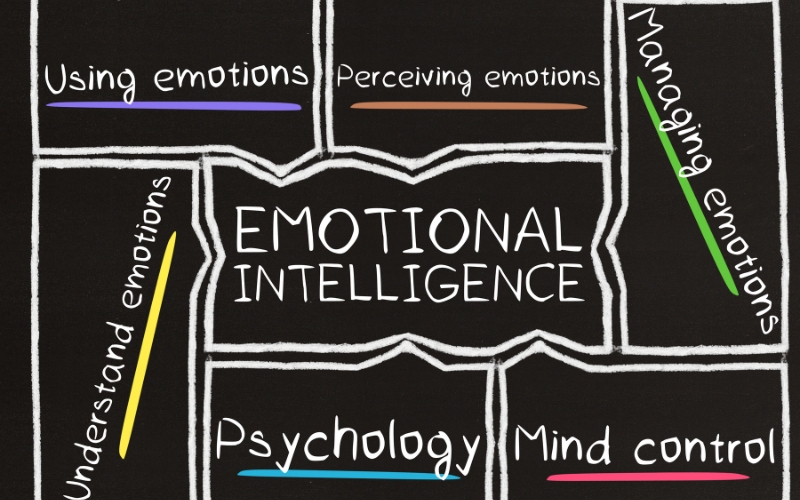In today’s rapidly evolving business landscape, the importance of emotional intelligence (EQ) in leadership cannot be overstated. Executives with high emotional intelligence can navigate complex interpersonal dynamics, foster a positive work culture, and drive organizational success. As we move into 2024, hiring executives with emotional intelligence has become not just a preference but a necessity for companies looking to stay competitive and resilient.
In this article, we’ll explore why emotional intelligence is critical for executive roles and how organizations can prioritize EQ in their hiring processes.
What Is Emotional Intelligence?

Emotional intelligence refers to the ability to recognize, understand, manage, and influence emotions—both in oneself and in others. This concept, popularized by psychologist Daniel Goleman, encompasses five key components:
- Self-awareness: Recognizing one’s own emotions and how they impact behavior.
- Self-regulation: The ability to control and manage emotions, particularly in high-stress situations.
- Motivation: An internal drive to achieve goals beyond external rewards.
- Empathy: Understanding and sharing the feelings of others.
- Social skills: Building and maintaining healthy relationships with others.
These elements combine to create leaders who are not only capable of making rational decisions but also of inspiring and motivating teams. In 2024, emotional intelligence will play an even more pivotal role in executive leadership as companies face increasing demands for adaptability, empathy, and resilience.
The Importance of Emotional Intelligence in Executive Leadership

Executives are the backbone of any organization’s success. Their decisions, leadership style, and ability to manage people directly influence company culture and performance. Leaders with high emotional intelligence bring several key advantages that make them indispensable in the modern workplace.
- Improved Communication Executives with strong emotional intelligence excel at communication, both verbal and non-verbal. They understand the importance of active listening and can pick up on subtle emotional cues. This skill is crucial for resolving conflicts, providing constructive feedback, and fostering open dialogue within teams. In 2024, as remote work and hybrid teams continue to rise, clear and empathetic communication will be more important than ever.
- Enhanced Team Collaboration A leader with high emotional intelligence can create a collaborative and supportive team environment. These executives understand the emotional needs of their employees and are skilled at promoting teamwork and cooperation. By fostering a positive work atmosphere, they encourage employees to feel comfortable sharing ideas and taking creative risks—ultimately leading to more innovation and productivity.
- Stronger Employee Retention One of the biggest challenges organizations face today is retaining top talent. Executives with emotional intelligence are more likely to retain employees because they build trust, show genuine concern for their well-being, and create an environment where employees feel valued and respected. Emotional intelligence in leadership has been shown to improve job satisfaction, reduce burnout, and lower turnover rates.
- Crisis Management In times of crisis or uncertainty, emotionally intelligent leaders stand out. They remain calm under pressure, think clearly, and maintain a positive attitude, which helps to reassure their teams. These leaders can quickly adapt to new challenges and make thoughtful decisions while considering the emotions and well-being of their employees. As businesses continue to navigate global disruptions and market volatility in 2024, leaders with strong EQ will be essential.
- Better Decision-Making Executives with high emotional intelligence do not allow emotions to cloud their judgment. Instead, they recognize their feelings, regulate them, and make decisions based on rational thought and empathy. This ability to balance logic and emotion results in well-rounded, thoughtful decision-making that considers both the company’s goals and the impact on employees.
Why Emotional Intelligence is Crucial for 2024

As we look ahead to 2024, several factors make hiring executives with emotional intelligence a must for any forward-thinking organization.
- Navigating Hybrid Work Models With hybrid work becoming the norm, leaders need emotional intelligence to navigate the complexities of managing both in-person and remote teams. EQ helps executives create a sense of belonging and connection, even in dispersed work environments. Emotionally intelligent leaders can also better support employees in maintaining a healthy work-life balance, which is vital for long-term productivity and well-being.
- Emphasis on Mental Health and Well-Being The focus on employee mental health and well-being has been growing, and in 2024, it will become even more critical. Leaders with emotional intelligence are equipped to recognize signs of stress, anxiety, or burnout in their teams and can proactively offer support. They are more empathetic and understanding, making them well-suited to lead organizations that prioritize mental health initiatives.
- Adaptability in Uncertain Times In an ever-changing global market, companies need executives who can remain adaptable and resilient. Emotionally intelligent leaders thrive in uncertainty because they are self-aware and can regulate their emotional responses to change. They also inspire their teams to remain flexible and motivated, ensuring that the organization can adapt to new challenges and opportunities as they arise.
- Diversity, Equity, and Inclusion (DEI) Initiatives In 2024, DEI will continue to be a top priority for organizations. Emotionally intelligent executives play a crucial role in leading these initiatives. They can build diverse teams, create inclusive environments, and ensure that all voices are heard and respected. EQ allows leaders to be empathetic and understanding of different perspectives, making them more effective in promoting diversity and inclusion within the workplace.
How to Hire Executives with Emotional Intelligence

Given the importance of emotional intelligence in leadership, how can organizations prioritize this trait when hiring executives? Here are a few strategies to incorporate EQ into your executive hiring process:
- Incorporate Behavioral Interview Questions During the interview process, use behavioral questions to gauge a candidate’s emotional intelligence. Questions like “Can you describe a time when you had to manage a team through a difficult situation?” or “How do you handle conflict within your team?” provide insight into how well a candidate can manage their emotions and navigate interpersonal challenges.
- Use EQ Assessment Tools Several assessment tools are available to measure emotional intelligence in candidates. These assessments can help you identify executives who score highly in self-awareness, empathy, and social skills. Combining these tools with traditional evaluation methods can give you a more holistic view of a candidate’s leadership potential.
- Evaluate Past Performance A candidate’s past performance can also reveal their emotional intelligence. Look for examples where they have demonstrated empathy, strong communication, and resilience under pressure. Speak with previous colleagues or supervisors to understand how they managed team dynamics and handled challenges in the workplace.
- Cultural Fit and Emotional Intelligence When assessing candidates for cultural fit, make sure that emotional intelligence aligns with your company’s values. Leaders who embody EQ will naturally foster a positive, inclusive work environment and align with organizational values around teamwork, communication, and employee well-being.
Prioritize Emotional Intelligence for Leadership Success
As we approach 2024, it’s essential to recognize that emotional intelligence is a critical component of effective executive leadership. Leaders who possess EQ can communicate effectively, foster collaboration, retain talent, and navigate crises with ease, ensuring long-term success in today’s complex business landscape.
Take action now by prioritizing emotional intelligence in your executive hiring process. Build a leadership team that embodies empathy, adaptability, and forward-thinking. Connect with us today to enhance your leadership strategy and cultivate a more effective organization!


